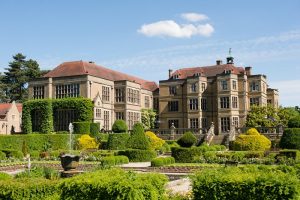Solving the Mysteries of Energy Expenditure Compensation
Organisers: Vincent Careau and Lewis Halsey
Date: 12 – 15 July 2026
Location: Fanhams Hall, Hertfordshire, UK
The more active we are during the day, the more calories we will have burned by the end of it. This is the received wisdom on how people’s levels of activity affect their daily energy expenditure (DEE). Yet it is contradicted by the observation that average DEE remains stable in the long-term regardless of changes in activity levels, both in humans and other animals. If we accept this as reality, it represents a fundamental change in how we conceive the relationship between physical activity and DEE, with profound ramifications for our understanding of energy balance, weight management and the current obesity epidemic. Despite this, we have little idea how the body achieves energy compensation and to what degree.
To thoroughly explore the mysteries of energy expenditure compensation, this Workshop will include the following sessions:
- Humans – behavioural-physiological energy compensation
- Non-human animals – behavioural-physiological energy compensation
- Changes in body composition
- Changes in metabolism at the sub-cellular level
- Statistical modelling of energy compensation
Organisers & speakers
Vincent Careau University of Ottawa, Canada
Lewis Halsey University of Roehampton, UK
Edward Archer EvolvingFX, USA
Jose Areta Liverpool John Moores University, UK
Melissa Bateson Newcastle University, UK
Anja Bosy-Westphal Kiel University, Germany
Éric Doucet University of Ottawa, Canada
Steven Heymsfield Pennington Biomedical Research Center, USA
Karsten Koehler Technical University of Munich, Germany
Marek Konarzewski University of Bialystok, Poland
Stephanie Levy CUNY Hunter College, USA
Danny Longman Loughborough University, UK
Kimberley Mathot University of Alberta, Canada
Herman Pontzer Duke University, USA
Erik Postma University of Exeter, UK
Karine Salin Ifremer, France
Andrew Yegian Harvard University, USA
Early-career researchers
We offer 10 funded places for early-career researchers (PhD, postdocs and PIs in the first three years of their first appointment) to attend our Workshops along with the 20 invited speakers. We just ask that you pay for your own travel costs. If you would like to attend please complete the online application form and include a one page CV and a letter of support from your supervisor. If your supervisor would prefer to send the letter directly to us please ask them to email it to workshops@biologists.com
All attendees are expected to actively contribute to the Workshops by asking questions at presentation sessions and taking part in discussions, as well as giving a short talk on their research.
Some travel grants are available for researchers that are based in Global South countries (list of qualifying GS countries ), on an application basis. Please contact us for more details.
About Fanhams Hall

The Workshop will be held at the beautiful Fanhams Hall in Hertfordshire. An exceptional combination where old tradition meets the 21st century, Fanhams Hall Hotel is a Jacobean Manor House. Set in 27 acres of stunning Grade I listed grounds it boasts many features including a Grade II listed Japanese Tea House and formal gardens.
The hotel’s Hertfordshire location is just a short distance from all the major routes into London, Stansted, M1, M25 or simply the A10 just around the corner.
Fanhams Hall
Fanhams Hall Road
Ware
Hertfordshire
SG12 7PZ
United Kingdom
Tel: +44 (0)1920 460511








You must be logged in to post a comment.